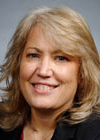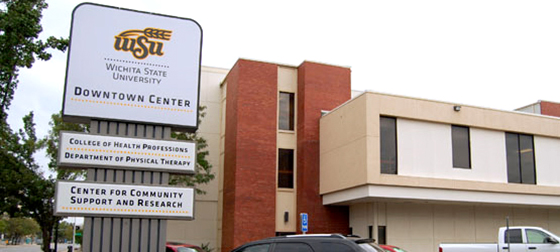Through its work helping others address local, regional and statewide challenges, Wichita State's Center for Community Support and Research is fast becoming a leader for other similar centers.
One of the ways the CCSR is making a name for itself is through a project commissioned by the Kansas Children's Cabinet and Trust Fund. In 1999, the Kansas Legislature created the Children's Cabinet to oversee expenditures from the Master Tobacco Settlement. Much of the state's portion of the settlement was dedicated to improving the health and well-being of Kansas children and youth.
CCSR was selected by Children’s Cabinet to lead the evaluation of a visionary process related to identifying and implementing common measures across more than 160 early childhood programs across Kansas.

Tara Gregory
“This is significant,” says Tara Gregory, director of research and evaluation for CCSR. “Using common measures across so many programs, many of whom have similar but not the same programs, will allow us to help the Children’s Cabinet identify the impact of their funding on children, families and early childhood programs across the state.”
Expanding its reach
This initiative also offers early childhood programs technical assistance to prepare them to meet a specific set of the goals for statewide evaluation and continuous quality improvement.

Lynn Schrepferman
“One of the initiatives associated with the evaluation of the Early Childhood Block Grants is the assessment of the quality of classrooms,” says Lynn Schrepferman, CCSR senior research scientist. “Observation of the quality of interaction in the classroom has been found to be a strong predictor of child academic achievement. These observations not only provide data for the evaluation but also allow for programs to identify professional development needs.”
It’s a difficult process to try to measure common outcomes across so many different programs, which is why it’s not often done, Gregory says. It’s a major effort with potentially significant implications.
“Helping a whole network of early childhood programs increase their capacity to understand and utilize evaluation for the good of children, families and providers is innovative in that this typically happens on a very limited basis with only the largest, well-funded programs,” Gregory says. “CCSR is assisting a wide range of grantees that might not otherwise have had access to rigorous and coordinated evaluation.”
Gregory says the CCSR’s ability to tackle such a complicated project speaks volumes on the quality of their services. Over the past 10 years, the center has been building its ability to provide evaluation and other services specifically to child- and youth-serving organizations. During that time, CCSR has completed community assessments and evaluations for a number of child- and youth-serving organizations – but on a somewhat limited, case-by-case basis.
With the addition of Schrepferman in 2011, the center has expanded its ability to undertake larger, more coordinated projects.
“That sets CCSR apart nationally because we’re one of few university centers that provide this whole range of services to help non-profit and community and faith-based organizations be as effective and sustainable as possible,” Gregory says.


 File
File